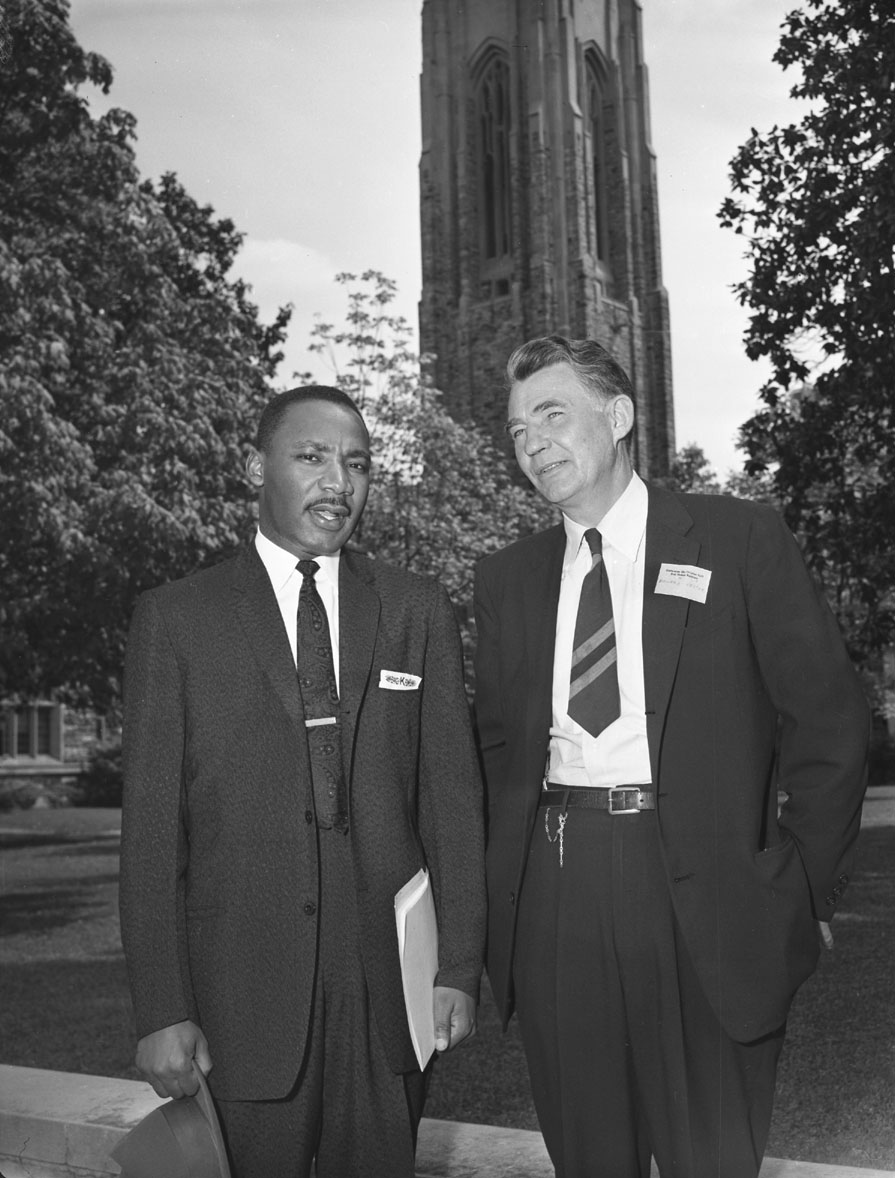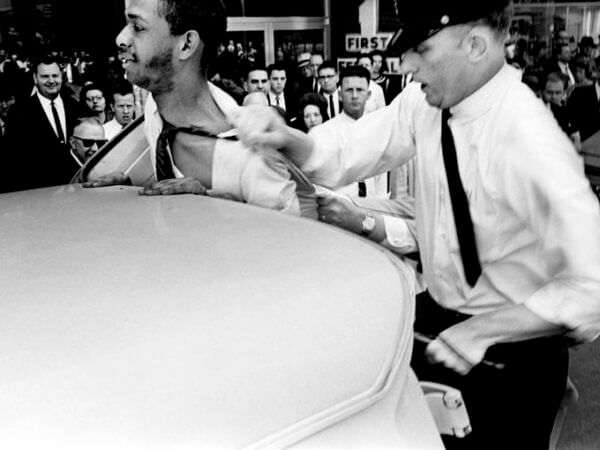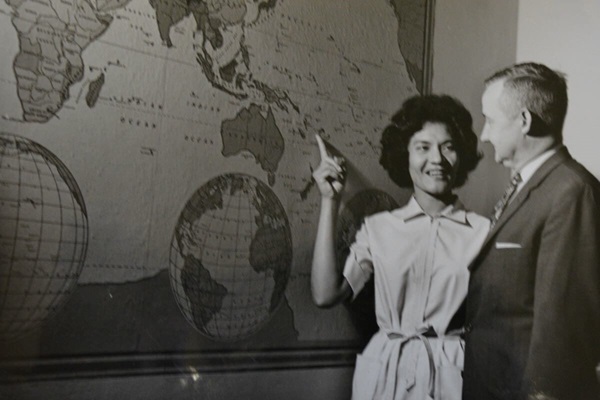In 2024, the Scarritt Bennett Center celebrated the 100th anniversary of its arrival in Nashville, Tennessee. Over the last century Scarritt has been a tireless advocate for racial justice within the City of Nashville and beyond. Originally founded by Methodists as a school to train Christian missionaries in 1892, the college moved from Kansas City, Missouri to Nashville in 1924.
Scarritt Bennett’s commitment to racial equality can be traced back to its co-founder and namesake, Belle Harris Bennett, a missionary and women’s suffragist. Unusual for a white Southern woman of her time, Bennett was an advocate for African American civil rights.[1]
The college admitted its first two African American students in 1952, Leilia Robinson and DeLaris Johnson. This was two years before the U.S. Supreme Court released its Brown v. Board of Education decision mandating the integration of all public schools in the United States. Robinson would later become the college’s yearbook editor, while Johnson would serve as treasurer for the student council. Scarritt’s early integration efforts would serve as a model for other colleges in Nashville.[2]

In April 1957, Dr. Martin Luther King Jr. spoke at Scaritt College to the Conference on Christian Faith and Human Relations. He is pictured with Howard Kester, executive secretary of The Fellowship of Southern Churchmen, Black Mountain, N.C. Photo courtesy of Nashville Banner archives at the Nashville Public Library.
In 1957, Dr. Martin Luther King Jr. addressed students in Wightman Chapel on the Scarritt campus. King’s speech, entitled “The Role of the Church in Facing the Nation’s Chief Moral Dilemma” was a call to action for Christian leaders (both Black and white) to take the lead in advocating for racial equality. Here is an excerpt from that speech:
“The churches are called upon to recognize the urgent necessity of taking a forthright stand on this crucial issue. If we are to remain true to the Gospel of Jesus Christ, we cannot rest until segregation and discrimination are banished from every area of American life. It has always been the responsibility of the Church to broaden horizons, challenge the status quo, and break the mores when necessary.”[3]
During the 1960s, Scarritt Bennett became a center for student activism. In 1963, Scarritt student Lorine Chan was not unallowed to eat at a local restaurant called the Campus Grill because of her race as a Pacific Islander. Several Scarritt students partnered with other colleges in the area to form the Joint University Council on Human Relations, which organized boycotts of Campus Grill and other restaurants that refused to serve non-white customers.[4]
Some of the leaders of the Campus Grill Boycott would go on to become members of the Student Nonviolence Coordinating Committee (SNCC) that would lead sit-in movements across the South. In April of 1964 two Scarritt students would be attacked while participating in civil rights demonstrations in Downtown Nashville. Archie Allen was assaulted by employees at a local restaurant called Tic Toc. Later that same week, another student William Barbee was arrested twice and beaten by police. Barbee had a concussion would suffer permanent injuries for the rest of his life.[5]
Scarritt Bennett remained a Christian college until 1988 when it was converted into a retreat and learning center supporting the equality and justice for all people.

Metro police officers wrestle with demonstrator William Barbee, left, a student at Scarritt College, as they attempt to put him into the paddy wagon after his arrest on Church Street. April 28, 1964. Photo by Frank Empson. Courtesy of The Tennessean.
Today in its new incarnation, Scarritt remains hosts conferences, training seminars, speaker events, and other programs support racial justice. Scarritt is proud of its legacy as a beacon for racial equality in the Deep South and continues to be “a voice for the forgotten, justice for the marginalized, and hope when the world despairs.”[6]
Notes
[1] Richey, Russell E., Rowe, Kenneth E., and Schmidt, Jean Miller. The Methodist Experience in America Volume I: A History. Nashville: Abington Press, 2010.
[2] Davis, Jeaean. “Integration at Scarritt College, 1952/4.” Scrarritt Bennett. Nashville, TN, 2016. https://scarrittbennett.org/integration-at-scarritt-college-19524/
[3] King, Martin Luther, Jr. “The Role of the Church in Facing the Nation’s Chief Moral Dilemma.” The Martin Luther King Jr. Research and Education Institute. Stanford University, CA. https://kinginstitute.stanford.edu/king-papers/documents/role-church-facing-nation-s-chief-moral-dilemma-address-delivered-25-april
[4] Davis, Jeaean. “Campus Grill Boycott, 1963.” Scrarritt Bennett. Nashville, TN, 2016. https://scarrittbennett.org/campus-grill-boycott-1963/
[5] Davis, Jeaean. “William Barbee’s Story, 1964.” Scrarritt Bennett. Nashville, TN, 2016. https://scarrittbennett.org/william-barbees-story-1964/
[6] Scarritt Bennett Center. Nashville, TN https://scarrittbennett.org/

